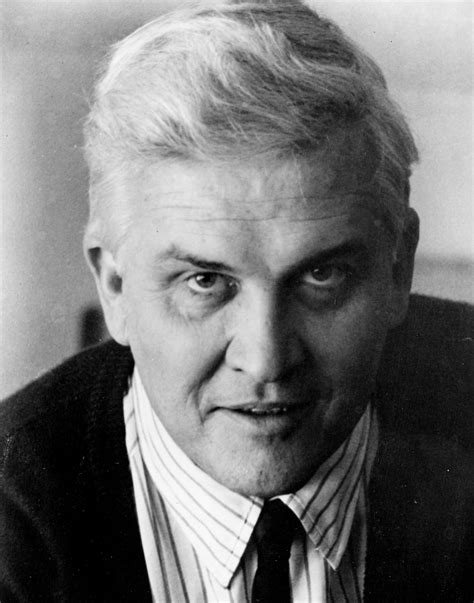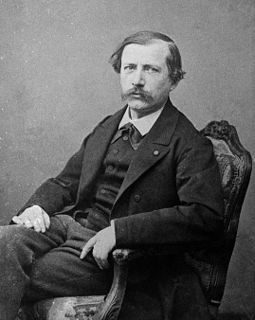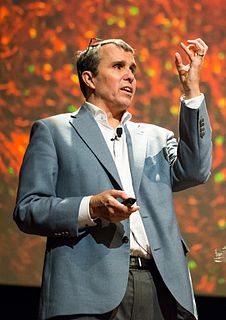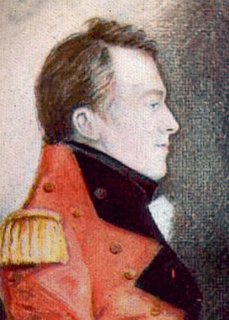Top 1200 God And Science Quotes & Sayings - Page 2
Explore popular God And Science quotes.
Last updated on December 23, 2024.
What is sin? It is the glory of God not honored. The holiness of God not reverenced. The greatness of God not admired. The power of God not praised. The truth of God not sought. The wisdom of God not esteemed. The beauty of God not treasured. The goodness of God not savored. The faithfulness of God not trusted. The commandments of God not obeyed. The justice of God not respected. The wrath of God not feared. The grace of God not cherished. The presence of God not prized. The person of God not loved. That is sin.
Science fiction is fantasy about issues of science. Science fiction is a subset of fantasy. Fantasy predated it by several millennia. The '30s to the '50s were the golden age of science fiction - this was because, to a large degree, it was at this point that technology and science had exposed its potential without revealing the limitations.
How is it that hardly any major religion has looked at science and concluded, “This is better than we thought! The Universe is much bigger than our prophets said, grander, more subtle, more elegant?” Instead they say, “No, no, no! My god is a little god, and I want him to stay that way.” A religion, old or new, that stressed the magnificence of the Universe as revealed by modern science might be able to draw forth reserves of reverence and awe hardly tapped by the conventional faiths.
I've learned to distinguish between the greatness of God and the inexcusable evil that has been done by those professing his name. And so I do not deduce [as Christopher Hitchens does] that God is not great, and that religion poisons everything. After all, if I failed to distinguish between the genius of Einstein and the abuse of his science to create weapons of mass destruction, I might be tempted to say science is not great, and technology poisons everything.
No matter how much we may study, it is not possible to come to know God unless we live according to His commandments, for God is not know by science, but by the Holy Spirit. Many philosophers and learned men came to the belief that God exists, but they did not know God. It is one thing to belief that God exists and another to know Him. If someone has come to know God by the Holy Spirit, his soul will burn with love for God day and night, and his soul cannot be bound to any earthly thing.
Social Science, is not a 'gay science' but rueful, which finds the secret of this universe in 'supply and demand' and reduces the duty of human governors to that of letting men alone. Not a 'gay science', no, a dreary, desolate, and indeed quite abject and distressing one; what we might call, the dismal science
When people think science and cooking, they have no idea that it's not correctly expressed. We're actually applying the scientific method. People think chemistry and physics are science, but the scientific method is something else.... It's the science that the world of cooking generates: science of butter; science of the croissant.
Science is being daily more and more personified and anthromorphized into a god. By and by they will say that science took our nature upon him, and sent down his only begotten son, Charles Darwin, or Huxley, into the world so that those who believe in him, &c.; and they will burn people for saying that science, after all, is only an expression for our ignorance of our own ignorance.
There is a power in the soul, quite separate from the intellect, which sweeps away or recognizes the marvelous, by which God is felt. Faith stands serenely far above the reach of the atheism of science. It does not rest on the wonderful, but on the eternal wisdom and goodness of God. The revelation of the Son was to proclaim a Father, not a mystery. No science can sweep away the everlasting love which the heart feels, and which the intellect does not even pretend to judge or recognize.
I wanted to be a scientist. My undergraduate degree is in biology, and I really did think I might go off and be some kind of a lady Darwin someplace. It turned out that I'm really awful at science and that I have no gift for actually doing science myself. But I'm very interested in others who practice science and in the stories of science.
We are living in a society that is totally dependent on science and high technology, and yet most of us are effectively alienated and excluded from its workings, from the values of science, the methods of science, and the language of science. A good place to start would be for as many of us as possible to begin to understand the decision-making and the basis for those decisions, and to act independently and not be manipulated into thinking one thing or another, but to learn how to think. That's what science does.
I think men of science as well as other men need to learn from Christ, and I think Christians whose minds are scientific are bound to study science that their view of the glory of God may be as extensive as their being is capable. But I think that the results which each man arrives at in his attempts to harmonize his science with his Christianity ought not to be regarded as having any significance except to the man himself, and to him only for a time, and should not receive the stamp of a society.
When biblical material touches on the natural world, we can legitimately use the tools of science. Sometimes that shows us - no shock here - that biblical writers didn't know as much as we now know about the natural world - but God knew that when he picked them, so that alone tells us that "doing science" that would satisfy a 21st century - and beyond - audience wasn't what God was interested in with respect to the enterprise of producing Scripture for posterity.
Science ignores the spiritual realm because it is not amenable to scientific analysis. As importantly, the predictive success of Newtonian theory, emphasizing the primacy of a physical Universe, made the existence of spirit and God an extraneous hypothesis that offered no explanatory principles needed by science.
All Science is necessarily prophetic, so truly so, that the power of prophecy is the test, the infallible criterion, by which any presumed Science is ascertained to be actually & verily science. The Ptolemaic Astronomy was barely able to prognosticate a lunar eclipse; with Kepler and Newton came Science and Prophecy.
Whatever man may stand, whatever he may do, to whatever he may apply his hand - in agriculture, in commerce, and in industry, or his mind, in the world of art, and science - he is, in whatsoever it may be, constantly standing before the face of God. He is employed in the service of his God. He has strictly to obey his God. And above all, he has to aim at the glory of his God.
Once upon a time, science, philosophy, and theology were disciplines largely undifferentiated from one another, and proving the existence of God was a fairly commonplace intellectual exercise. But as the scientific method became increasingly refined, particularly through the nineteenth century, science and religion grew apart.
To most theistic believers, human life can have no meaning in a universe without God. Quite sincerely, and with understandable yearning for a meaning to their existence, they reject the possibility of no God. In their minds, only a purposeful universe based on God is possible and science can do nothing else but support thistruth.






















































